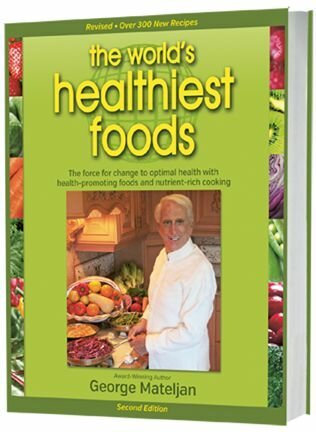 The World's Healthiest Foods are health-promoting foods that can change your life.
The World's Healthiest Foods are health-promoting foods that can change your life.
Try our exciting new WHFoods Meal Plan.
 The World's Healthiest Foods are health-promoting foods that can change your life.
The World's Healthiest Foods are health-promoting foods that can change your life.
Try our exciting new WHFoods Meal Plan.
Hydrogenated fats are unnatural fats that are detrimental to your health.
Food fats naturally occur in three general types:
Hydrogenation (or, more accurately, "partial hydrogenation," as the process is incomplete) is the forced chemical addition of hydrogen into omega-6 polyunsaturated oils to make them hard at room temperatures, primarily as a cheaper and less perishable substitute for butter in crispy bread products. Common hydrogenated fats include hydrogenated or partially hydrogenated cottonseed, palm, soy, and corn oils, but theoretically almost any polyunsaturated oil can be hydrogenated.
The chemical structure of artificially hardened hydrogenated fat is, however, different from either that of a naturally hard saturated fat or naturally liquid unsaturated (mono- or poly-) oil. Saturated fats have a rigid straight molecular form, which tends to "rigidify" the body structures into which they are incorporated, like blood vessels (thus the association between hard animal fats and atherosclerosis or hardening of the arteries). Unsaturated fats have various wavy or zigzag forms (called "cis-" forms) that contribute to more flexible arteries and other body structures. Hydrogenated fats also have bent molecular shapes, but hydrogenated fats are bent in the mirror-opposite direction (which is why they are called "trans-" forms) of naturally occurring unsaturated fats. For this reason, hydrogenated fats are difficult for the body to "grab onto" and metabolize, and can neither be incorporated into cell structures nor excreted in the normal fashion. Thus, hydrogenated or "trans-" fats tend to remain "stuck" in blood circulation, becoming oxidized and most importantly, contributing significantly to an increased risk for cardiovascular disease and possibly also cancer.

Everything you want to know about healthy eating and cooking from our new book.

Order this Incredible 2nd Edition at the same low price of $39.95 and also get 2 FREE gifts valued at $51.95. Read more